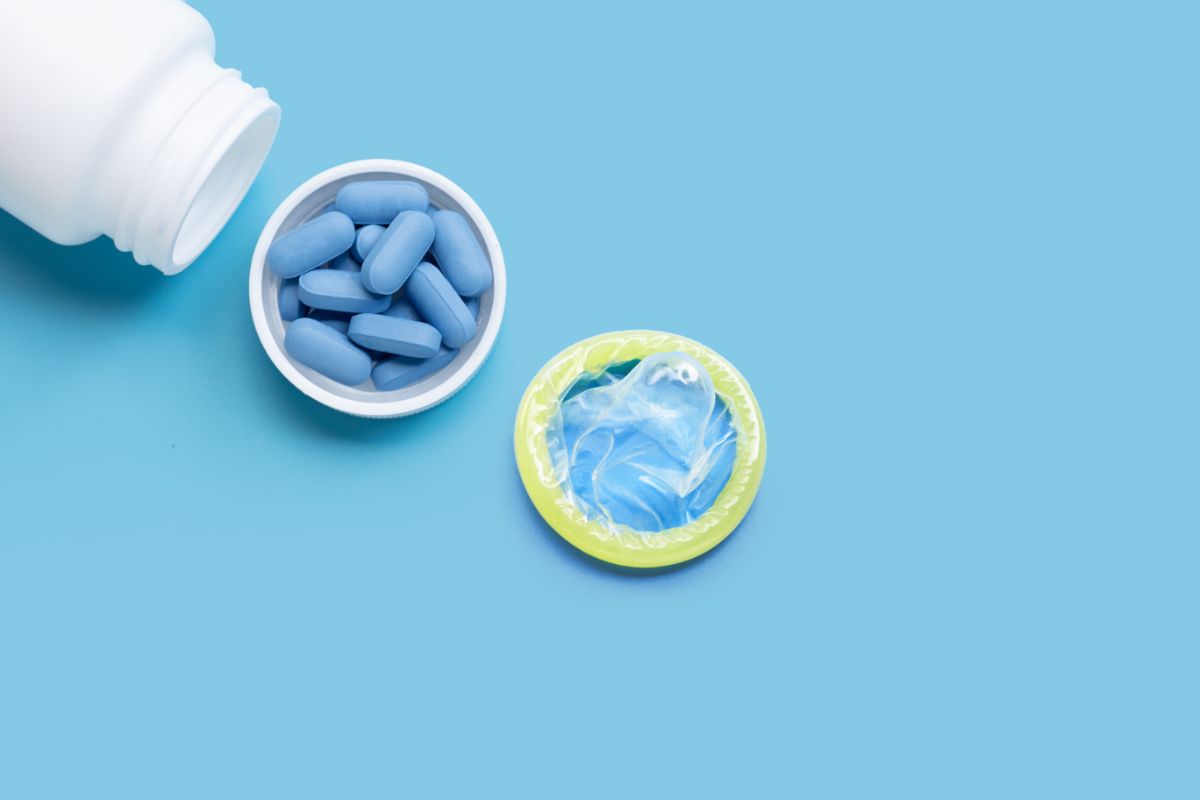HIV is a virus that causes AIDS and is a disease that has sadly claimed the lives of millions of people worldwide.
Though this is still a serious condition, recent innovations in medicine have seen a number of advances and breakthroughs in treatment and prevention plans, and these have the potential to transform lives all across the world.

We took a closer look at the main forms of HIV prevention, as well as the information that you need to know about HIV in general.
What Is HIV?
The first thing we should talk about when it comes to HIV is what exactly it is and how it spreads.
HIV is a virus, which means that it can only be transmitted through bodily fluids like blood or semen.
This includes vaginal sex, anal sex, oral sex, sharing needles, and other activities where there is contact with blood or semen.
In order for an individual to contract HIV, they must come into direct contact with someone who already has the virus.
What Is The HIV Virus?
Next, let’s take a look at the HIV virus itself. It is made up of proteins and nucleic acids and is found in the body cells.
These cells include T-cells, B-cells, macrophages, dendritic cells, and monocytes. The virus attaches itself to the host cell and enters the cell via endocytosis.
Once inside the cell, the virus uses reverse transcriptase to convert its RNA genome into DNA.
This process allows the virus to replicate and spread throughout the body.
How Can I Prevent HIV Infection?
The best way to prevent HIV infection is to use condoms during sexual activity – these have the added bonus of also helping to protect against pregnancy too.
When choosing condoms, make sure that they are latex-based, and don’t contain any oils or lubricants.
They should fit comfortably, and not cause discomfort or pain.
Condoms prevent HIV by blocking the entry of the virus into your body.
If you are sexually active, you should always practice safe sex by using a condom every time you engage in intercourse, and this is particularly important if you are having sex with a new partner, or with multiple partners.
You should also avoid having unprotected sex if you think you may be infected.
What Is PrEP?
PrEP stands for pre-exposure prophylaxis and is another form of HIV prevention. It works by giving you medication before you become exposed to the virus so that your immune system is primed to fight off the virus.
There are two types of PrEP drugs on the market today: daily pills and once-weekly injections.
Daily Pills
Daily PrEP involves taking a pill each day, usually one hour before you plan to have sex.
This helps to keep the levels of the drug high enough in your bloodstream to prevent the virus from entering your body.
However, some users report side effects such as nausea, diarrhea, headaches, and insomnia.
Once A Week Injections
Once a week injectable PrEP involves injecting yourself with a dose of the medication just once per week.
This method is more convenient than daily pills but requires regular visits to a clinic or doctor’s office.
Some people find it easier to remember to take their injection once a week rather than remembering to take a pill every day.

Which Method Should I Use?
If you choose to use PrEP, it is important to get tested regularly to ensure that you are still free of the virus.
This will help to show your doctor if you need to change your dosage or stop taking the medication altogether.
If you decide to start using PrEP, it is recommended that you do so under medical supervision.
Your doctor will discuss all aspects of PrEP with you, including what type of PrEP to use, how much to take, when to take it, and whether there are any other precautions you need to follow.
The method of PrEP that you choose will ultimately be a personal choice; the injections can be more convenient, as there is no need to remember to take a pill each day, but they do require regular trips to a doctor’s office, and may not be the best option for those with needle phobias.
Daily pills, on the other hand, can be taken easily in the privacy of your own home, but do require you to remember each day – it can be a good idea to set an alarm or other reminder.
How Does PrEP Work?
The most common way that HIV is transmitted is through unprotected sex.
When an infected person has sexual intercourse without using condoms, the virus enters the body through tiny cuts in the skin.
Once inside the body, it travels to the lymph nodes where it begins replicating. This process takes about three days.
During this time, the virus multiplies rapidly and destroys CD4 cells. Eventually, the number of these cells drops below 200, leaving the body vulnerable to other diseases.
The good news is that if you take PrEP before exposure occurs, your chances of contracting HIV are greatly reduced.
In fact, taking PrEP daily can reduce your chances of getting infected by up to 99%. PrEP works by preventing the virus from entering the body.
It does this by either inhibiting the virus or by killing the virus once it gets into the body.
What Are The Risks Of Taking PrEP?
Taking PrEP has been shown to reduce the risk of contracting HIV by up to 99%. However, this protection only lasts while you are taking PrEP.
If you miss a single dose, the protective effect disappears. It is also possible to contract HIV even after taking PrEP for several years.
Taking PrEP can lead to side effects such as nausea and diarrhea.
Other common side effects include headache and insomnia, as well as weight loss which can be dangerous if not monitored and treated.
Final Thoughts
While HIV still remains a problem across the world, the innovations in treatment and medication are incredible, and research continues to evolve every day.
By making the most of the main resources available – PrEP medication and condoms, those living with HIV can take steps to live a normal life and enjoy healthy, safe relationships.
- Understanding Male Reproductive Health: A Complete Guide - February 2, 2025
- Simple Healthy Skin Habits for Radiant Skin - December 6, 2024
- Unlocking the Connection Between Nutrition and Mental Health - December 3, 2024








